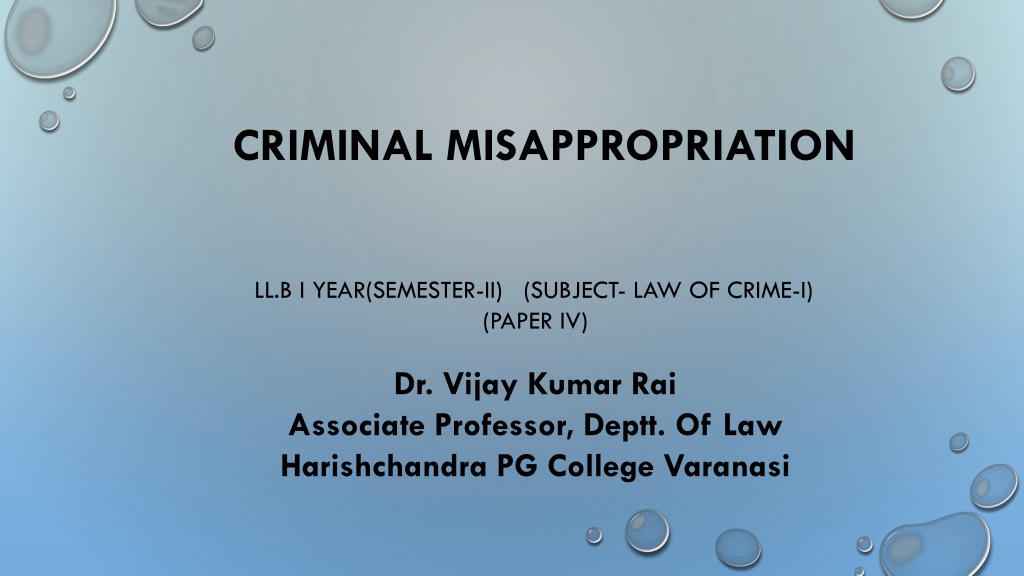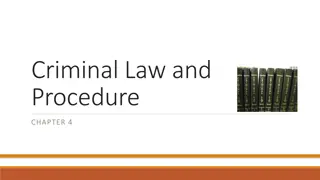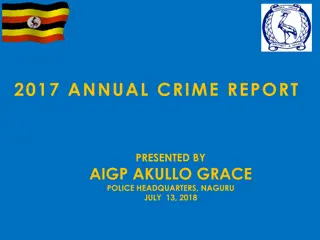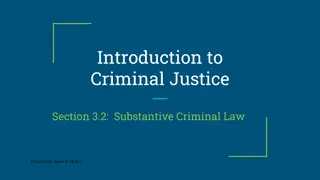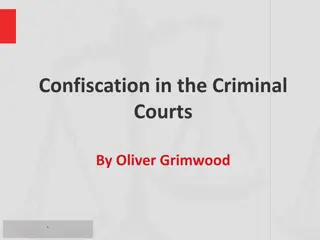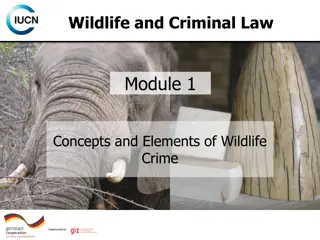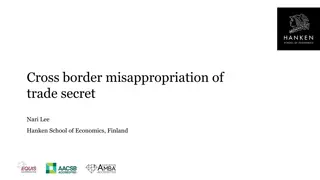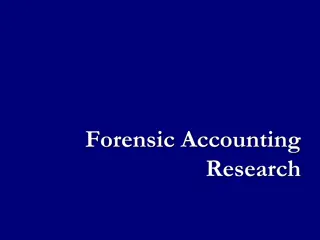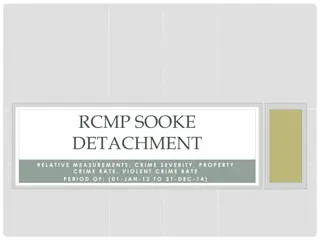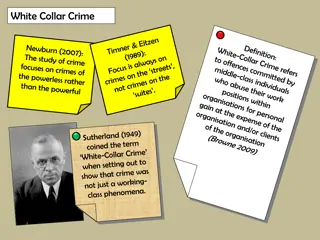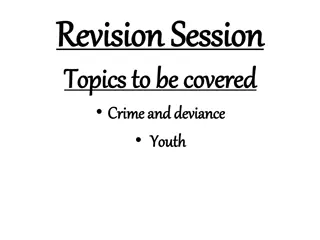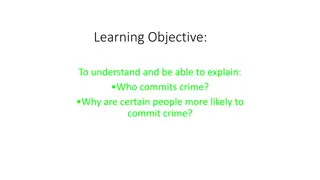Understanding Criminal Misappropriation in the Law of Crime
Dishonest misappropriation of movable property is punishable under Section 403 of the law. The section defines the ingredients and provides explanations, including scenarios where misappropriation may not be deemed as an offense. Reasonable means and time play a crucial role in determining guilt. The concept of movable property, misappropriation, and conversion are explored, along with relevant case laws.
Download Presentation

Please find below an Image/Link to download the presentation.
The content on the website is provided AS IS for your information and personal use only. It may not be sold, licensed, or shared on other websites without obtaining consent from the author. Download presentation by click this link. If you encounter any issues during the download, it is possible that the publisher has removed the file from their server.
E N D
Presentation Transcript
CRIMINAL MISAPPROPRIATION LL.B I YEAR(SEMESTER-II) (SUBJECT- LAW OF CRIME-I) (PAPER IV) Dr. Vijay Kumar Rai Associate Professor, Deptt. Of Law Harishchandra PG College Varanasi
Sec.403- Dishonest misappropriation of property. Whoever dishonestly misappropriates or converts to his own use any movable property, shall be punished with imprisonment of either description for a term which may extend to two years, or with fine, or with both. Ingredients of Sec. 403- (1) Movable Property (2) Misappropriation or Conversion of Property (3) Dishonest Intention
The Two Explanations attached to the Section:- Explanation 1. A dishonest misappropriation for a time only is a misappropriation with the meaning of this section. Explanation 2. A person who finds property not in the possession of any other person, and takes such property for the purpose of protecting if for, or of restoring it to, the owner does not take or misappropriate it dishonestly, and is not guilty of an offence; but he is guilty of the offence above defined, if he appropriates it to his own use, when he knows or has the means of discovering the owner, or before he has used reasonable means to discover and give notice to the owner and has kept the property a reasonable time to enable the owner to claim it.
What are reasonable means or what is a reasonable time in such a case, is a question of fact. It is not necessary that the finder should know who is the owner of the property, or that any particular person is the owner of it; it is sufficient if, at the time of appropriating it, he does not believe it to be his own property, or in good faith believe that the real owner cannot be found.
1) Movable Property:- -> Property must have an owner. Appropriation of a res nullius is no infraction of any legal right and therefore no offence under Section 403. Important Cases- Shyam Soondar v. Emperor, (1870) 2 NWP 275 Ramdayal v. Emperor, (1886) PR 24
2) Misappropriation or Conversion of Property:- -> Misappropriation is therefore a crime of a person dealing dishonestly with property entrusted to him for safe custody or other specified purposes. -> The right of disposing another man s property is itself conversion. -> A person misappropriating property may use it for another but in conversion he uses it for himself. Important Cases- Rajendra Singh v. State of UP, AIR 1960(ALL) 387 Inder Singh v. Emperor, (1907) PR 11
3) Dishonest Intention:- -> A mental act implying an allocation of thing as one s own, misappropriation is completed as soon as a person decides to appropriate the thing to his use with a dishonest intention. Important Cases- Jadhav v. M Haji, (1993) 2 SCC 562 Nathulal v. State of MP, AIR 1966 SC 43
PUNISHMENT:- Punishment for the offence under Sec. 403 is imprisonment up to 2 years or fine or both. The offence under Sec. 403 is non- cognizable, bailable and compoundable with court s permission.
